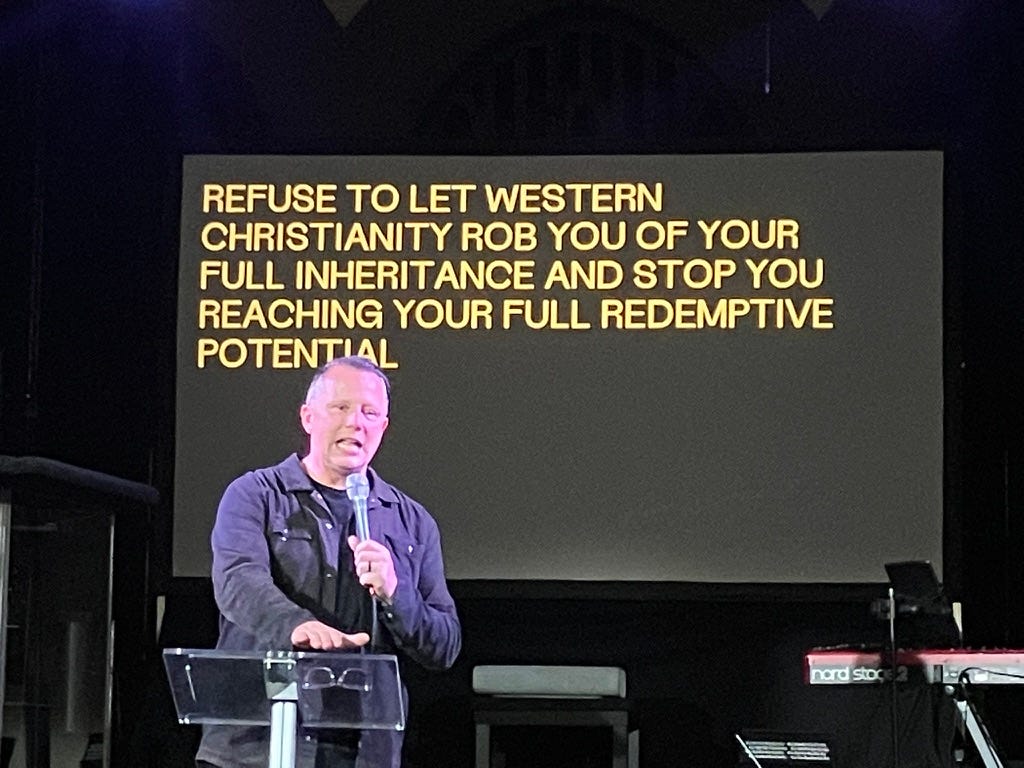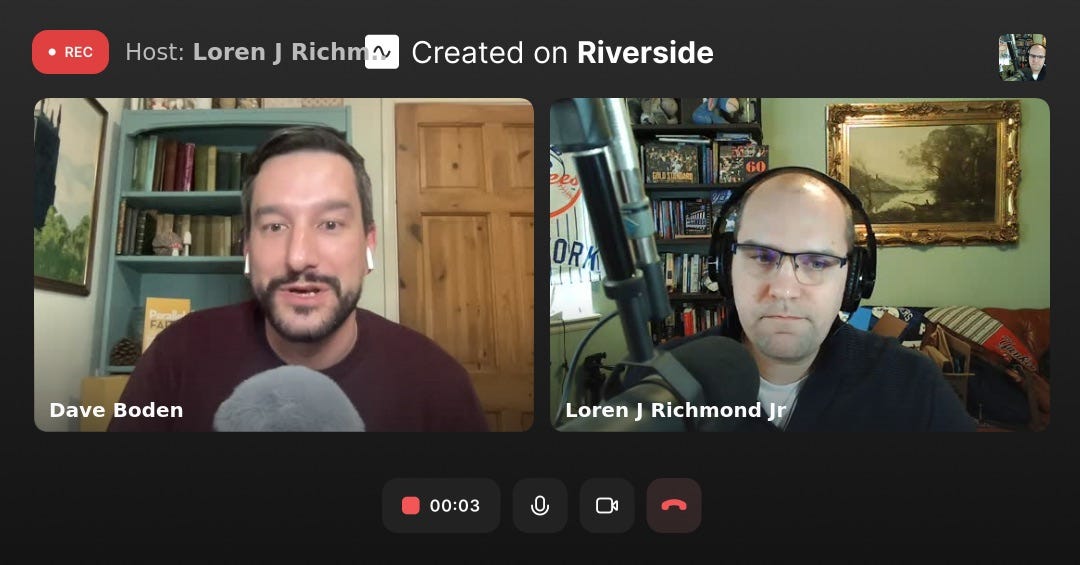In the 18th century, there was a great spiritual awakening across the United Kingdom led by heroes of the faith like John and Charles Wesley and George Whitefield, who translated the gospel into the hearts of the nation. There were however many lesser-known pioneers caught in this wave of reformation who never quite made the hall of fame. One such person you've probably never heard of is John Berridge (1716-1793), also known as The Vicar of Everton.
I first learned about Berridge not through his life, but through the way his death is commemorated in the midst of a graveyard in Everton, England. An epitaph, composed at Berridge's own request, offers a captivating glimpse not only into his life but also into the prevailing church culture of that era (and perhaps beyond).
After starting with the usual ‘Here lay the earthly remains of JOHN BERRIDGE’ it goes on to record a timeline centred around the process of his long journey to finding Christ.
Reader art thou born again?
No salvation without new birth.
I was born in sin February 1716
Remained ignorant of my fallen state till 1730
Lived proudly on faith and works for salvation till 1754
Admitted to Everton vicarage 1755
Fled to Jesus alone for refuge 1756
Fell asleep in Christ, 22 January, 1793.
Here we have a snapshot of a man’s faith life which seems straightforward at first but then there’s this interesting plot twist hidden within the words.
Admitted to Everton vicarage 1755
Fled to Jesus alone for refuge 1756
First, he became a Vicar… Then he became a Christian.
The story goes that Berridge had spent 8 years labouring in church ministry in various places and was totally ineffective yet still somehow managed to rely “proudly on faith and works for salvation”. The Believers Magazine says this about that season:
“At that time he thought that human merit and virtue was adequate to obtain salvation and his lively sermons exhorted his congregations to a life of good works.”
I did ponder for a moment how a timeline might look on my epitaph if I was to display some of my ‘Christian good works’ over the years:
1980: The year that God made me
1996: Wore my WWJD band with pride
1997: Helped the Delirious? band get in the top 40 UK Charts
2004: Went to watch The Passion of The Christ
And then I stopped mapping it out in case I needed to order an extra large tombstone!
The core of what Berridge preached before his actual conversion was built around behaviour modification and loving God for what you could get out of him. There is a well-researched word for this kind of approach, coined in the early 2000s, and it is called “Moral Therapeutic Deism (MTD).”
MTD in a nutshell, is based on a threefold idea:
Moral: God wants you to be nice and kind and do good things.
Therapeutic: God exists to make you happy and feel good about yourself.
Deism: God is impersonal and generic and isn't relevant unless you have a problem that needs solving.
To be honest, you could easily argue we still hear riffs on this kind of message in the church today. It sounds ‘good-news adjacent’ but the problem is that it is not the gospel. In seeking to make the gospel relevant for the next generation by watering it down to say ‘just be a bit more moral, have your needs met, and follow a generic deity (not the God of the Bible)’, we are perpetuating a form of godliness without power.
Research from the Arizona Christian University states that “people drawn to MTD are more likely to engage in biblical faith practices than they are to hold biblical beliefs.” That is quite a disturbing statement akin to Bono’s definition of religion, which centres around people doing, “God like things in God like ways, without the need for God.”
May this not be what our generation is remembered for.
Questions have to be asked about how people like John Berridge were able to function and even succeed in a church culture that allowed him to check the boxes of religious activity yet spur the notion of genuine discipleship. It would be easy to see this as an 18th century problem, but the truth is that it remains a nagging issue in our time.
Back in October 2023, my wife and I took a long overdue much-anticipated trip to New York City. Amidst the whirlwind tour of the Empire State Building, strolling through the bright lights of Times Square, and exploring the iconic Central Park, we decided to squeeze in a visit to Jon Tyson's Church of the City in downtown New York. We had both heard about their heart for the younger generation and their focus on presence, missional discipleship, and counter formation. We were intrigued to see what they were doing and were not disappointed. Partway through the talk, Tyson leaned in close to the room full of millennials and challenged them with this bombshell:
"Refuse to let Western Christianity rob you of your full inheritance and stop you reaching your full redemptive potential."
Tyson emphasised that if we only measure our spiritual growth by comparing ourselves to others within the church institution, it becomes easy to merely attend meetings and consider ourselves successful. However, we must be cautious about the standards we settle for, especially when society tolerates and even celebrates mediocrity. In such an environment, minimal expectations can dampen the motivation for meaningful discipleship, stunting growth. That’s when you get leaders who aren’t even Christians because they don’t need to be.
Setting a low bar doesn't imply establishing impossible standards for a new person’s entry into the church community. Instead, it's about creating a clear pathway that challenges individuals to aspire to something greater once they're part of it.
In a recent Future Christian podcast with myself and Pastor Loren Richmond Jr, we talked as part of our wide-ranging conversation about the idea that we can become successful at religious activities yet completely miss the goal of spiritual formation. I also quoted one of my favourite sayings from my book Parallel Faith - “So many Christians get born again and then they get bored again.”
This happens when we settle for generic religion over specific relationship.
Thankfully the history books tell us that John Berridge made a significant impact on an entire generation. During the Christmas of 1757 Berridge realised Moral Therapeutic Deism was a fruitless endeavour and as his gravestone says he “fled to Jesus alone for refuge.”
Once he surrendered his life, God began to use it.
His dry and boring sermons became full of spirit fuelled passion and thousands flocked from all around to hear the true sound of good news. Charles Spurgeon said this of Berridge:
“There is no wonder that the people thronged him, for his style was so intensely earnest, homely, and simple, that every ploughman was glad to hear the gospel preached in a tongue which he could understand, and with an earnestness which he could not resist.”
That’s quite a turnaround for a guy who was once on spiritual autopilot. His preaching even began to show signs of charismatic renewal in days that became anything but ordinary.
I long for a day when the Christian young people in our generation refuse to settle for a generic form of Western Christianity but rather go after Christ as their refuge. And I pray for a day when the spiritually curious youth who have never encountered Jesus are able to hear the good news in a way they not only understand but also find hard to resist.
I have given my life to outwork this vision and I believe God invites us all into it too. At the end of the day I have no idea what will be written on my epitaph or what kind of legacy I will leave behind, but everything in me hopes it will point to Jesus.
PS: My new book Like or Follow: What every teenager needs to decide about Jesus is designed to help the next generation engage with the real Christ. Pick up a copy here. Don't forget there are massive bulk discounts available for youth groups from 10ofThose here.
PPS: You can listen to the entire
conversation with mentioned above on the podcast here and as a bonus you will find out what I would do if I were Pope for a day!









Well said, heart breaking, and encouraged the Lord uses such broken people for his kingdom.
I'm going to be sharing this with a youth worker who is studying to be a youth pastor. I hope this blesses and encourages him.